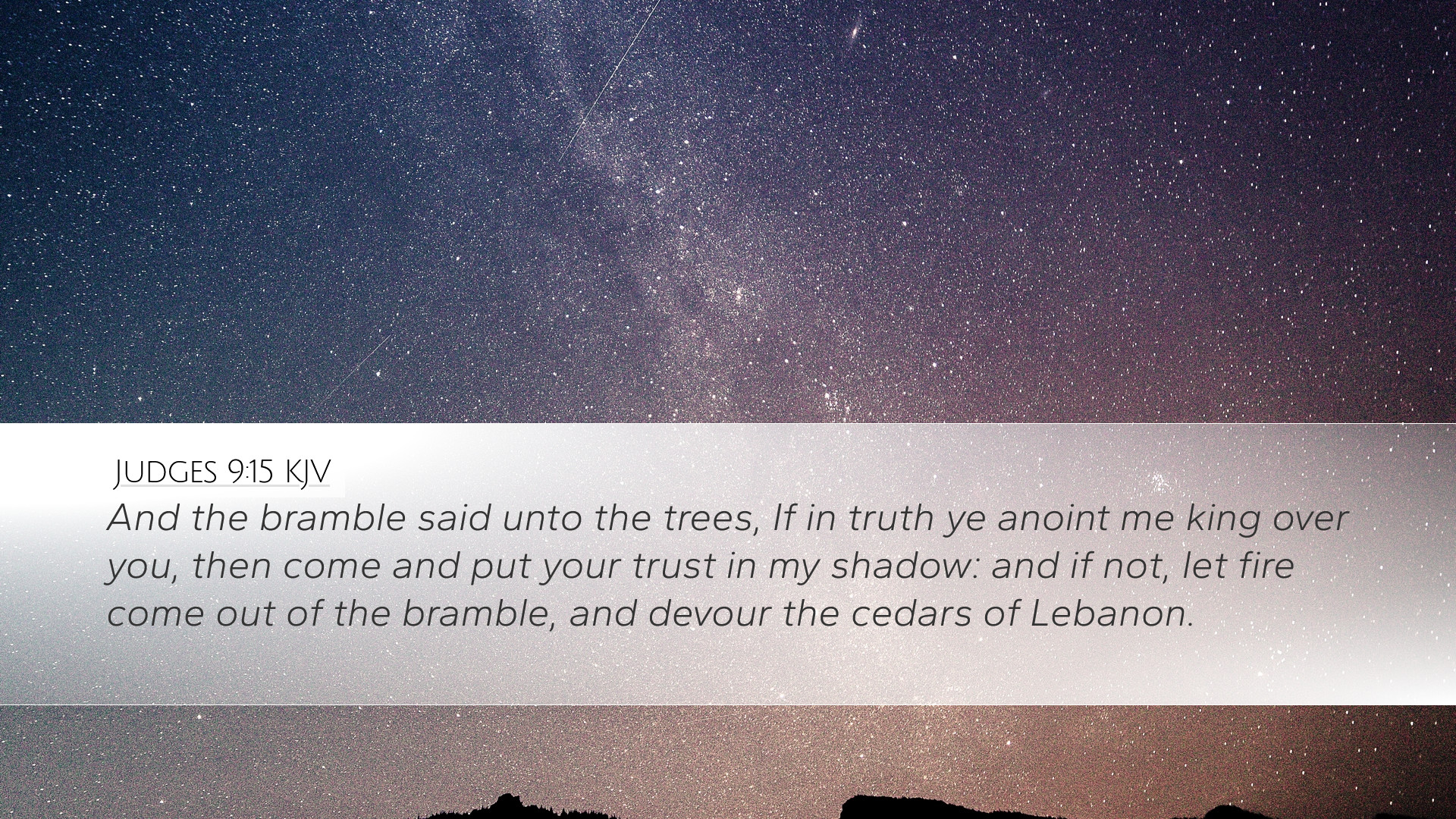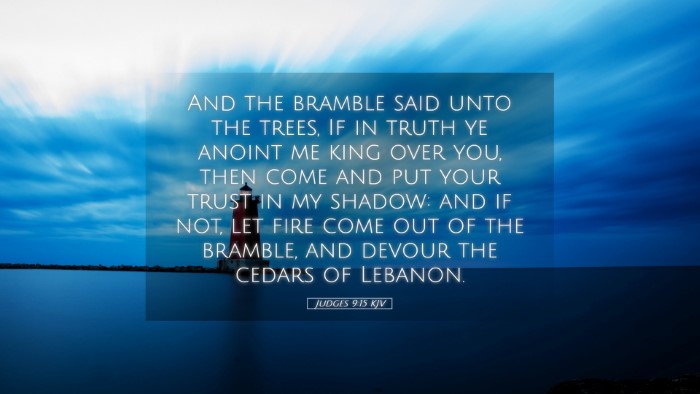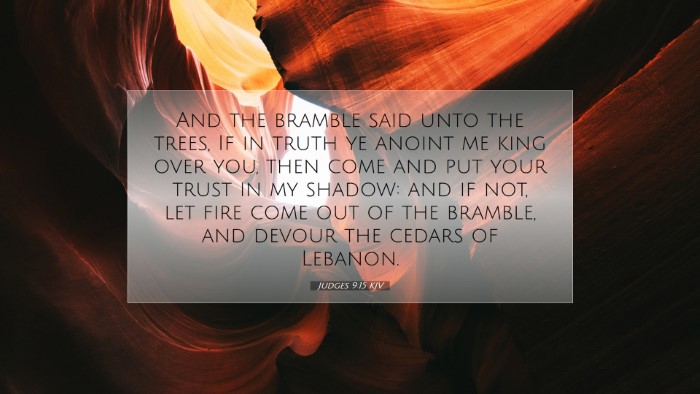Bible Commentary on Judges 9:15
Verse Context: Judges 9:15 states, "And the bramble said to the trees, If in truth you anoint me king over you, then come and take refuge in my shade; but if not, let fire come out of the bramble and consume the cedars of Lebanon." This verse is a part of Jotham's parable which he shares to illustrate the folly of choosing Abimelech as king.
Commentary Insights
Matthew Henry's Commentary
Matthew Henry emphasizes the metaphorical significance of the bramble as a symbol of false leaders. The bramble represents Abimelech, who emerged from an unworthy lineage, providing a stark contrast to the noble cedars. By choosing a bramble for leadership, the trees displayed a lack of discernment.
Henry points out that the bramble offers words of enticing ease, suggesting that the trees may find refuge in its shade. However, its promise is hollow, reflecting how unworthy leaders often mask their impotence with empty assurances.
This leads to Henry's significant observation: while the bramble may seem appealing because of its lowly stature and simple promises, it ultimately leads to destruction—a prophetic illustration of the fate that awaits those who choose to follow unworthy leaders.
Albert Barnes' Notes
Albert Barnes delves into the idiomatic aspects of the verse, noting that the phrase "take refuge in my shade" alludes to the misguided security that comes from aligning with a weak leader. Barnes argues that the trees (representing Israel) had options for leadership but instead chose the bramble, revealing a collective moral decay and poor judgment.
Barnes posits that the power of the bramble lies in its ability to deceive—offering temporary solutions while harboring the potential for destruction. The fire metaphor suggests that the consequences of resting under such unworthy leadership will ultimately lead to ruin, not just for the bramble but also for those who seek its temporary protections.
Adam Clarke’s Commentary
Adam Clarke explores the allegorical nature of the bramble in his discussion. He emphasizes the wild and ungoverned character of the bramble, indicating that it signifies a leader who lacks the tenacity and strength to guide effectively, here symbolizing Abimelech’s rule.
Clarke elaborates on the implications of the bramble enticing the trees to take refuge, arguing that true leadership ought to provide more than mere shelter; it should nurture and protect, akin to the cedars of Lebanon that stand tall and provide stability. The bramble’s offer is a play on the false promises that often come from leadership devoid of wisdom or virtue.
Moreover, Clarke warns of the devastating outcomes that can result when a nation (or people) chooses a ruler based on superficial qualities rather than essential virtues. He correlates this to the greater theme in Judges of sin bringing about chaotic governance and dire consequences.
Theological Implications
This parable serves not only as a critique of Abimelech’s kingship but also a reminder for contemporary leaders about the qualities that one should seek in their rulers. The bramble's self-serving nature serves as a warning against complacency and the temptation to settle for leadership that offers only empty promises.
Lessons for Pastors and Leaders
- Discernment: Leaders must carefully discern who to follow and ensure they align with those who embody the characteristics of Christ-like leadership.
- Integrity: Just as the cedars offer true shade and protection, leaders should aspire to integrity that provides real refuge to their followers.
- Warning Against Complacency: This passage calls attention to the dangers of complacency in leadership choices, urging a return to foundational values in determining leadership.
Conclusion
Judges 9:15 is rich in theological reflection and moral teaching, blending literary artistry with prophetic insight. The bramble, embodying flawed leadership, points to deeper issues of governance, moral decay, and the dire consequences of poor choices. For pastors, scholars, and students, it serves as a compelling reminder to pursue true wisdom and character in both leadership and community engagement.


